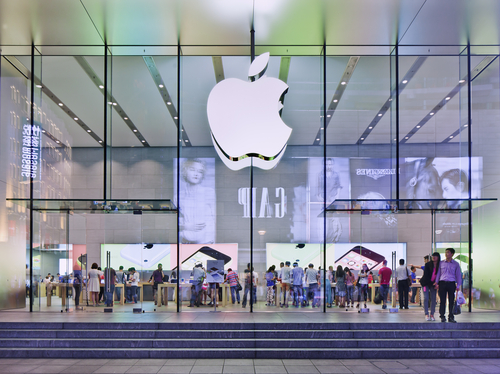 Apple is showing no signs of backing down in their fight with the U.S. government. The tech behemoth took significant legal steps on Thursday to halt the federal government’s pursuit of a government-only backdoor that would circumvent Apple’s encryption—which encodes private information—and compel the company to hack individual iPhones and produce customer information.
Apple is showing no signs of backing down in their fight with the U.S. government. The tech behemoth took significant legal steps on Thursday to halt the federal government’s pursuit of a government-only backdoor that would circumvent Apple’s encryption—which encodes private information—and compel the company to hack individual iPhones and produce customer information.
On February 16, 2016, without notice to Apple, the government asked the U.S. District Court for the Central District of California to compel the company to assist with the investigation of the December San Bernardino attack and hack into an iPhone 5c used by Syed Farook, one of the shooters. The government is attempting to invoke an 18th-century law, the All Writs Act of 1789, to force assistance with the investigation. That same day, the court granted the government’s motion to compel. The order requires Apple to write software creating “a backdoor to defeat the encryption on the iPhone, making its users’ most confidential and personal information vulnerable to hackers, identity thieves, foreign agents, and unwarranted government surveillance.”
A motion to vacate, or cancel, the court’s order, filed by Apple’s attorneys, states that no court has ever granted the government the power to force companies to weaken their security systems to facilitate access to private individuals’ information. Apple argues that the All Writs Act does not grant blanket authority “to change the substantive law, resolve policy disputes, or exercise new powers that Congress has not afforded them.”
Did you catch that? That last part is important. Congress is the legislative branch, the only branch that is tasked with creating new law. As Apple argues in its brief, “Congress has never authorized judges to compel innocent third parties to provide decryption services to the FBI.” A court order would effectively create new law and create a separation-of-powers issue, allowing the judicial branch to expand the government’s powers beyond the authority afforded to it by the 227-year-old law. However, the Act does not permit the courts to sidestep the lawmaking process by court order.
In 2014, at The Apple Worldwide Developers Conference (WWDC), the company announced that it updated its privacy policy as part of the roll out of their new operating system, iOS 8. Apple made it clear that devices with the latest version of the operating system installed would no longer be able to be accessed by the company itself. In effect, Apple slowly backed out of a conversation with an annoying friend—the government—encrypting themselves from their own devices.
Now, Apple has been confronted with the unique problem of asking the District Court to cancel a court order that would create an operating system for the government’s exclusive use—think of it as “GovtOS.”
Common law, or legal precedent, has long relied on analogical reasoning as a means for understanding complex and foreign concepts, specifically those that relate to cyberspace. Similarly, metaphors help put things in context, you probably do it in conversation all the time. Think of how you might explain something difficult to a friend.
Aaron Wright, a professor at Yeshiva University’s Benjamin N. Cardozo School of Law, offered a useful comparison to NPR: “One analogy that I’ve heard is, it’s like asking a door-maker to create doors that only let the government in. And in the process, that just creates risks that may enable other people to follow them through that door.”
A door is a door to enter it’s for. If Dr. Seuss can explain in rhyme, we can try too. No matter what promises the government can make about the security of that door, there will always be someone who can find a way in. That is Apple’s argument: it’s a slippery slope.
The federal government’s decryption requests are increasingly disconcerting. The government is asking Apple to create a door that would violate existing law, including the First and Fifth Amendments to the United States Constitution. The order would likely have the effect of compelling speech in violation of the First Amendment, and arbitrarily depriving Apple of its liberties in violation of the Fifth Amendment.
One thing is clear about this convoluted Goliath v. Goliath battle: it’s unlikely to end anytime soon.